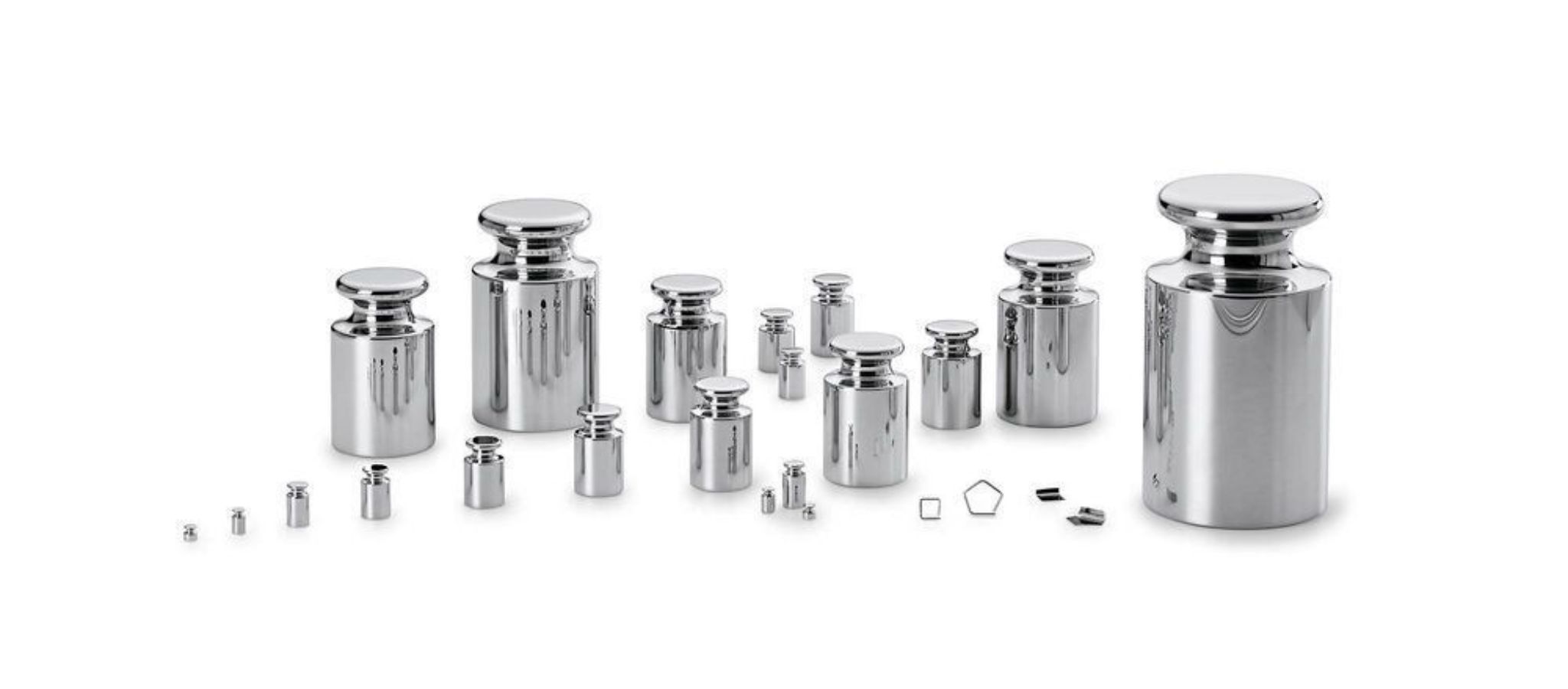Guide to Buying Test Weights for Scale Calibrations
Why Purchase Your Own Test Weights for Scale Calibration?
Owning a set of calibration weights is an excellent investment for anyone who relies on precise measurements in their operations. Whether you’re in the food, pharmaceutical, chemical, or logistics industry, having your own weights allows you to:
- Perform regular checks on your scales to ensure they remain accurate between service visits.
- Quickly verify the accuracy of your equipment after moving it or cleaning it.
- Reduce downtime and reliance on external calibration services.
By investing in your own weights, you ensure consistent quality control and compliance with industry standards.
Understanding the Difference Between E2, M1 and F1 Weights
Weights are classified according to OIML (Organisation Internationale de Métrologie Légale) standards, which provide accuracy classes for calibration weights. Two common classes are E2, M1 & F1:
- M1 Weights: These are suitable for calibrating industrial and trade scales with lower precision requirements. They are robust, cost-effective, and commonly used in general industrial environments.
- F1 Weights: These have a higher degree of accuracy and are often used for calibrating precision balances, such as those found in laboratories or pharmaceutical settings.
- E2 Weights: These are most popularly used for the calibration of high end weighing balances and scales. Weighing balances such as Semi Micro Balance, Micro Balance and Analytical Balances.
Choosing the right class depends on the precision required by your weighing equipment.
What is OIML Recommendation R111?
OIML R111 is the international standard governing calibration weights. It specifies:
- Accuracy classes (E1, E2, F1, F2, M1, M2, M3).
- Material requirements to ensure durability and stability.
- Manufacturing tolerances and maximum permissible errors.
When purchasing weights, ensure they comply with R111 standards to guarantee reliability and accuracy.
Essential Accessories for Your Calibration Weights
To maintain the accuracy and longevity of your weights, consider these important accessories:
- Weight Case: Protects your weights from physical damage, dirt, and contamination. Weight cases are lightweight and durable, making them ideal for transporting weights.
- Tweezers: Prevent direct handling, which can transfer oils from your hands to the weights, affecting their accuracy.
- Gloves: Provide an additional layer of protection during handling, reducing the risk of contamination.
- Non-Acidic paper: Placing a piece of non-acidic paper on to the weighing pan removes the metal-to-metal contact between the weighing pan and the weight protecting the weight from damage/scratching.
Some weight sets include tweezers, gloves, or even a brush to ensure proper care and handling.
How Many Weights Do You Need?
The number of weights you require depends on the range and increments of your scale. A basic set for general industrial use might include a few larger weights, while precision/analytical balances may require a comprehensive set with smaller increments to achieve finer calibrations.
Consider the maximum capacity and resolution of your scales when choosing the size and composition of your weight set.
Final Thoughts
Investing in your own set of calibration weights ensures you maintain the accuracy of your scales, meet compliance requirements, and streamline your quality control processes. By selecting the appropriate weight class, ensuring compliance with OIML R111, and using the right accessories, you’ll have everything you need for reliable and efficient scale calibration.
MWS sells both M1 and F1 weights through its online shop Scalesmart that are ideal for the verification of weighing instruments under an ISO quality regime. Both the M1 and F1 weights can be used for checking and calibrating scales and instruments in class III up to 10.000e.















